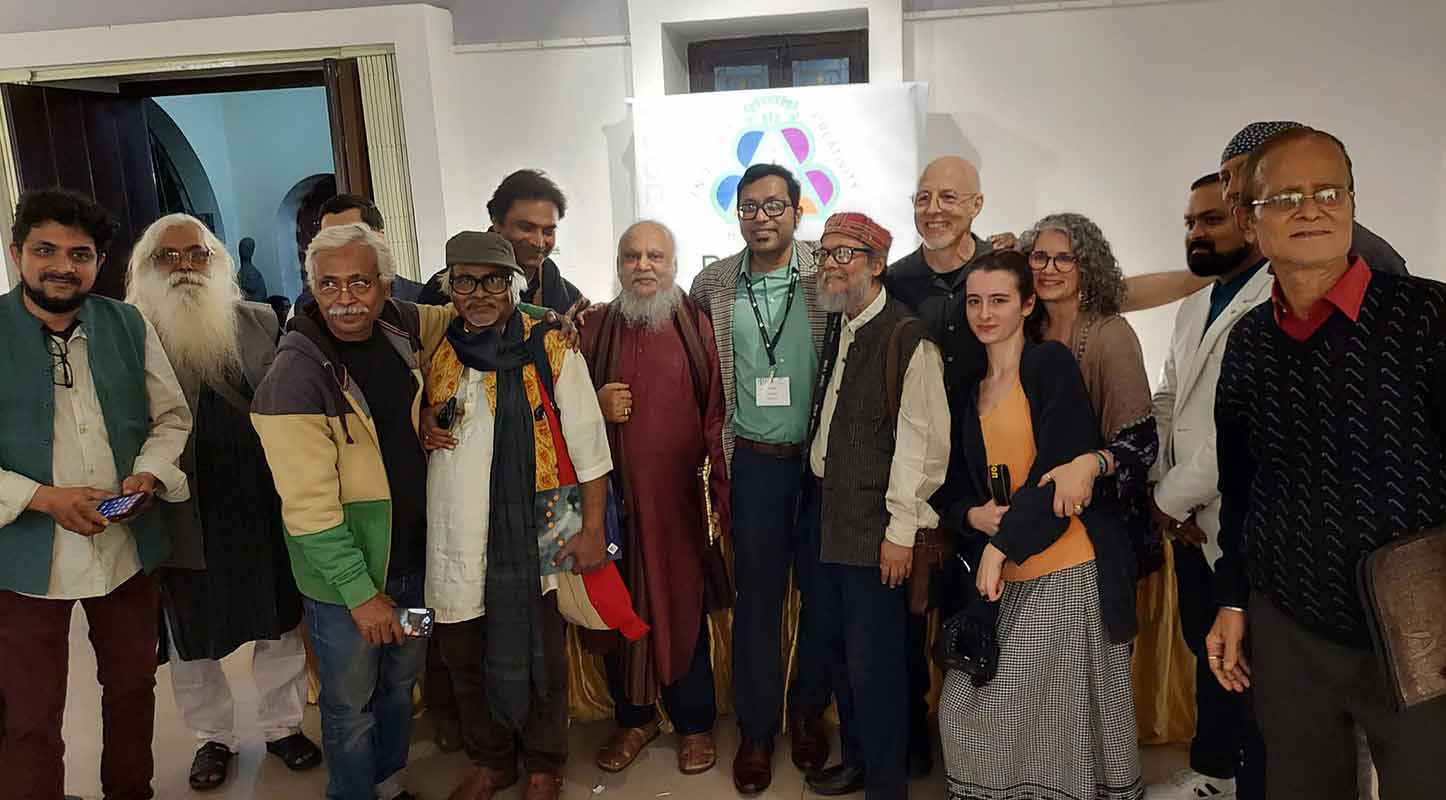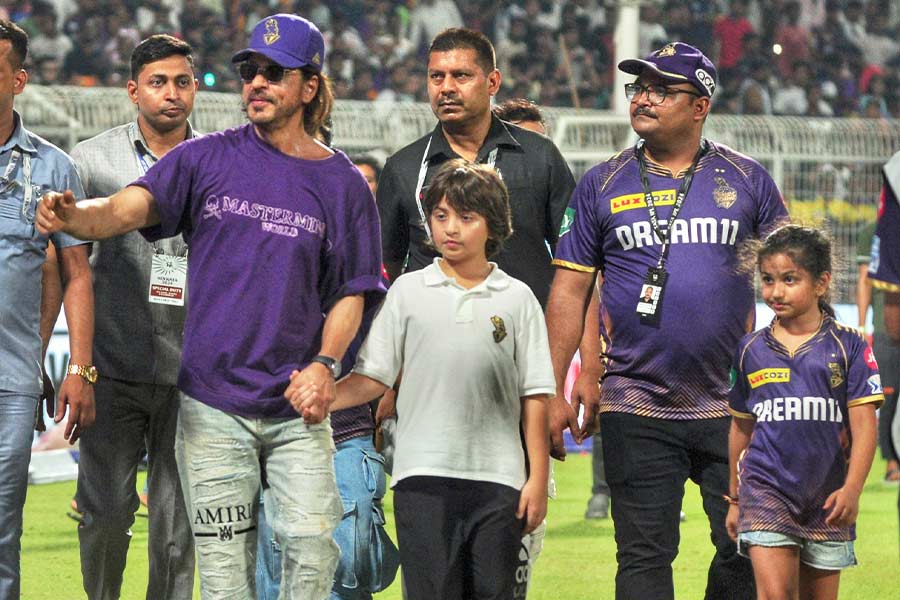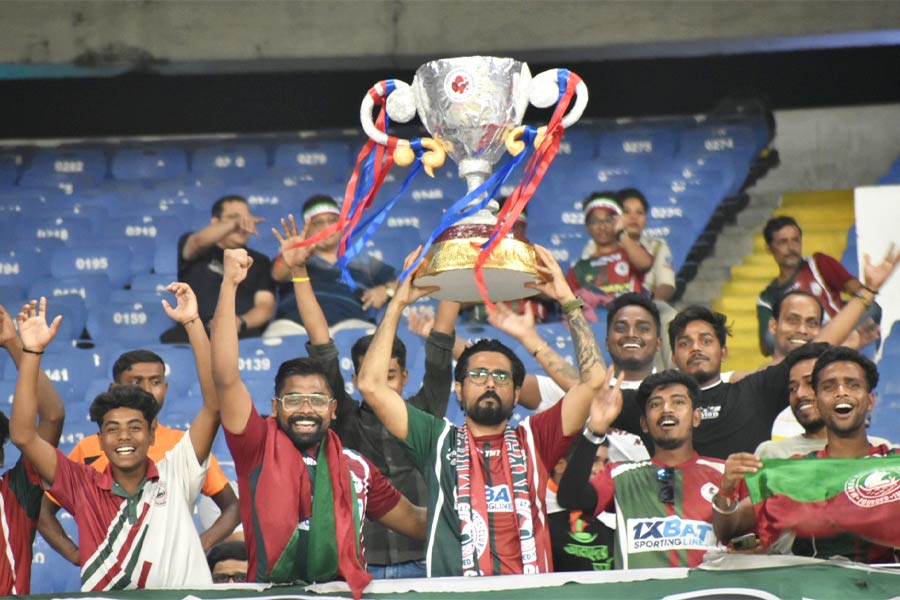Swami Vivekananda built a bridge between Bengal and Boston a century ago, when he gave a talk at Harvard University. Ujjal Sarkar, the founder of Bengal Boston Bridge (BBB), is taking this connection forward with a merger of art and science.
Sarkar longstanding efforts culminated last month, with experts in artistic and scientific disciplines from both West Bengal and Boston coming together at the Academy of Fine Arts for a series of workshops titled ‘Unconnected Yet’, held from January 16 to 22.
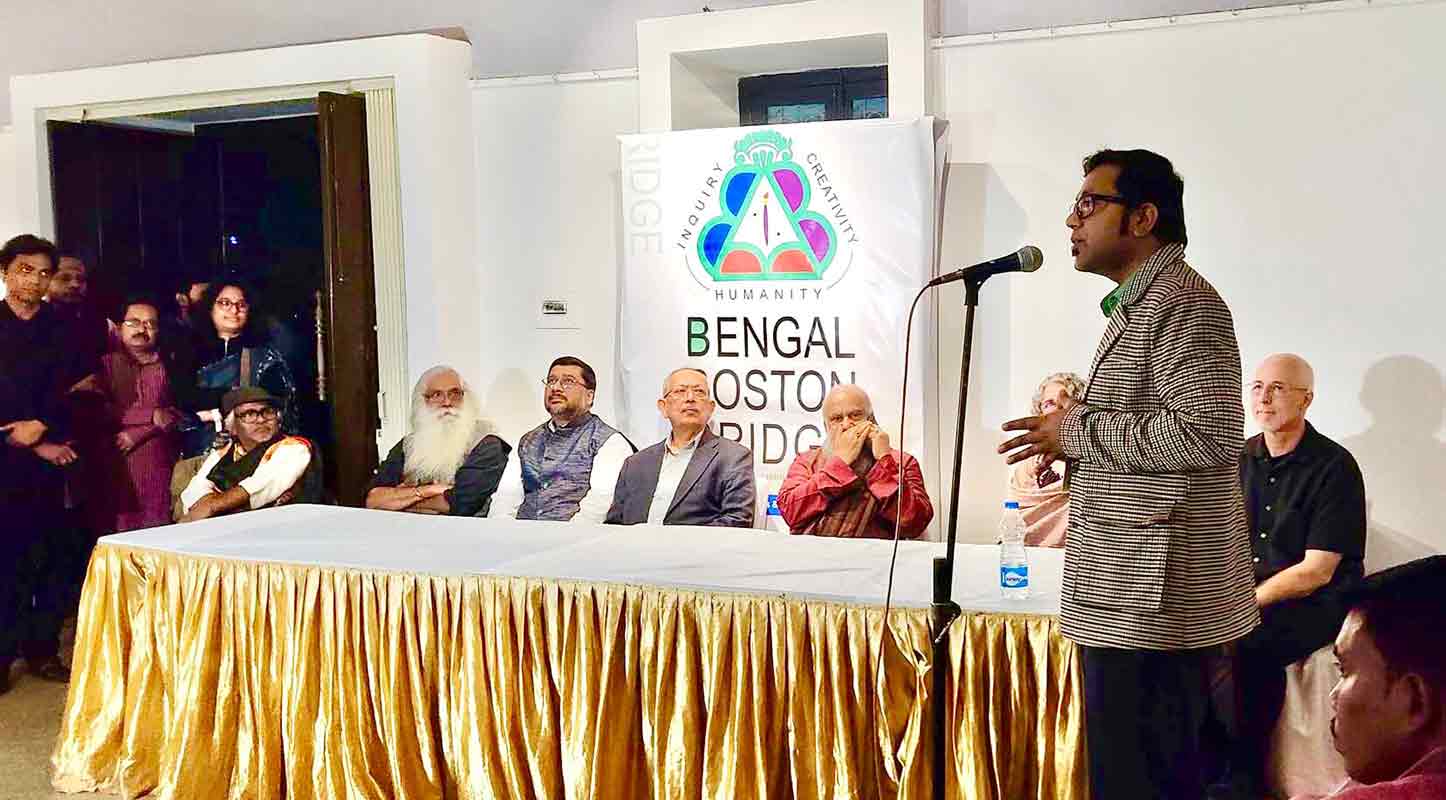
Dr. Ujjal Sarkar at the inauguration ceremony for ‘Unconnected Yet’
While Sarkar is a scientist in the pharmaceutical sector by profession, his tryst with art has transformed him as a person, having taken art workshops with Talin Megherian in the past. In March 2022, he was particularly moved by the Van Gogh Boston Exhibit: The Immersive Experience. The very next month, he booked exhibition spaces at the Academy of Fine Arts, Kolkata, for January 2023, with the desire to create an art show that would intersect with science. As he spent more time on the vision, the project became more personal to him. “I have been in the US for 21 years and thought of spiritually, intellectually and culturally bridging the dots between Bengal and Boston. This led to the formation of Bengal Boston Bridge last May. We wanted to use literature, art, science and technology to achieve convergence, with limitless potential. The philosophy behind it was to create a cross-cultural activity throughout the globe that can serve humanity,” he said.
In order to demonstrate how the diverse worlds collide, Sarkar gave a simple example. “Water bottles are often thrown into trash, but rarely recycled. When we bring in a scientist to the discussion, he uses his analytical skills and comes up with the idea to collect the bottles and prepare a cheap plastic material that can be used to make pavements in rural areas, or build roofs for the homeless. ‘Unconnected Yet’ was about seeking such low-hanging fruit. Our solutions aim to be inexpensive and driven by common sense.”
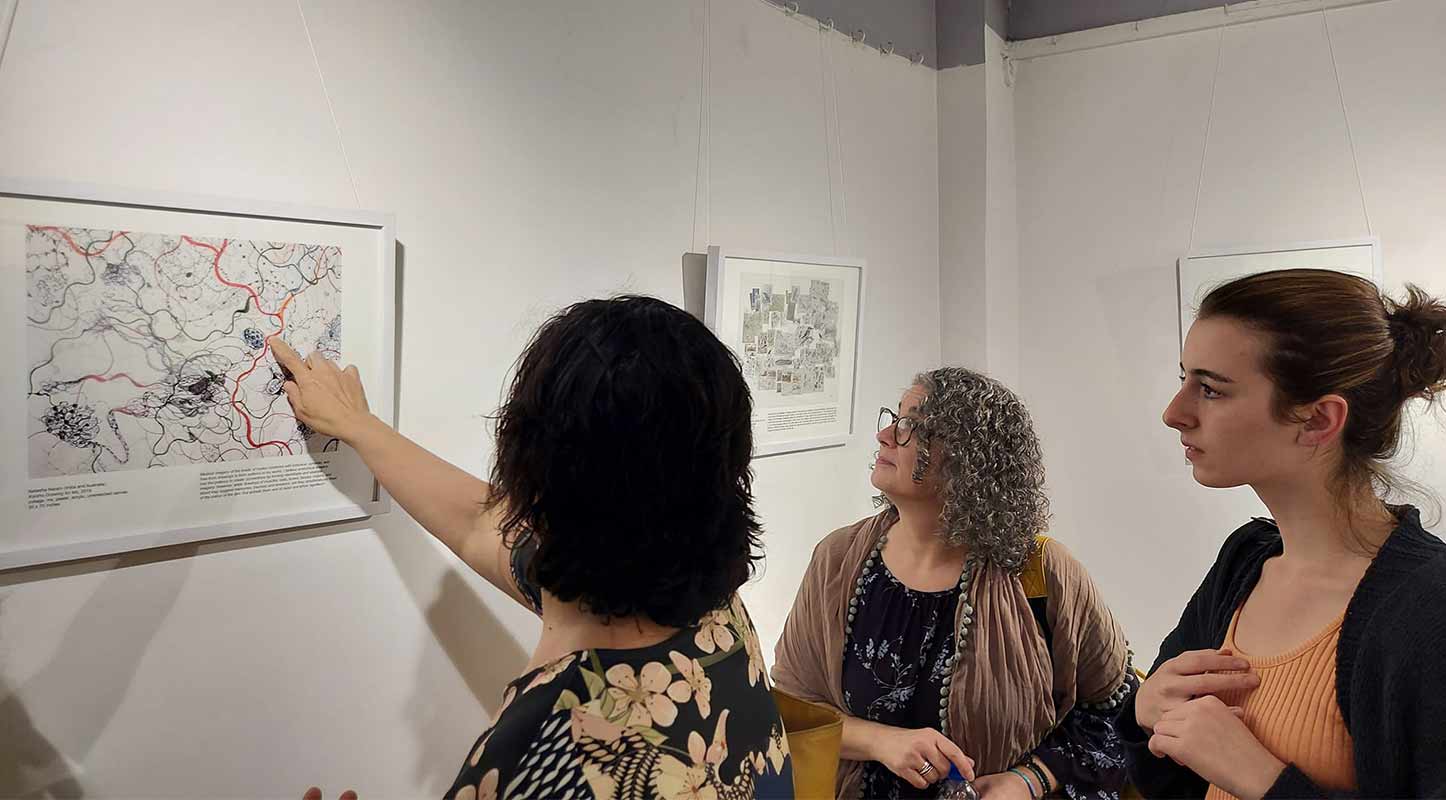
Artists from Boston at the event
Sarkar’s idea was simple, driven by a realisation that most problems can’t be solved alone. “If two people with a similar mindset want to do something for the community, you connect them. This is much like how two neurons in the brain are connected to create a synapse,” he explained. He brought on curators like Todd Bartel and Daniela Esponda, along with Megherian, to curate an international art collection from 10 countries. Several Bengali artists also came through — including Pradip Maitra, Somenath Maity and Jogen Chowdhury. In total, the project had a collective of 125 minds collaborating to create something unprecedented in both the art and science space. You can find the exhibition catalogue here.
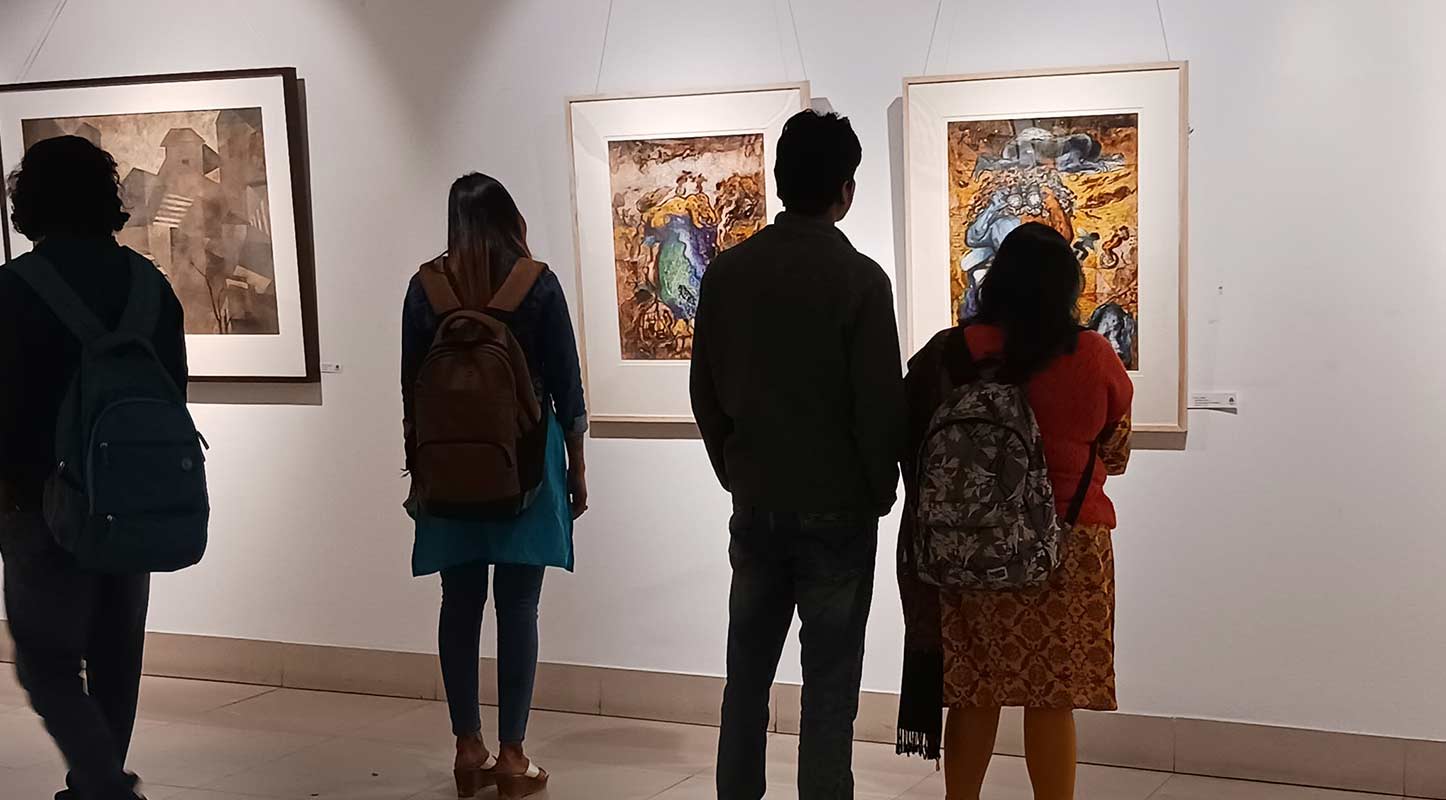
Visitors view the artworks
The nature of the project is what drew interest from artists across the board. BBB created workshops where the confluence of art and science impacted a social cause, particularly pertaining to children. “Textbooks have pictorial or visual representation, the power of which has always been underestimated. We wanted to find ways where art can become an integral part of school coursework. I have seen how kids, who may not be good in a subject like maths, can use art to solve problems. The workshops aimed to encourage such intellectual cross-curricular activities at the school level,” he said.
The focal point of the event was a workshop on how art can help kids with autism. Sarkar recounted, “We invited more than 20 kids with different spectrum disorders and their families. All the kids painted together on one big canvas in the Academy’s lawn.” The best feedback he received was from the mothers, who were moved by how engaged the kids were to sit in one place for two hours. “People on the spectrum and their families don’t want sympathy, they want empathy. Making a huge hospital won’t solve any problems if we don’t have social awareness.”
Another workshop comprised eminent artists, scientists and psychologists brainstorming over creating a long-term mental, emotional and behavioural health support system for specially-abled children in Bengal. The panel comprised experts like Dr. Debasish Bhattacharya, Subhra Banerjee and Swagata Roy, among others.
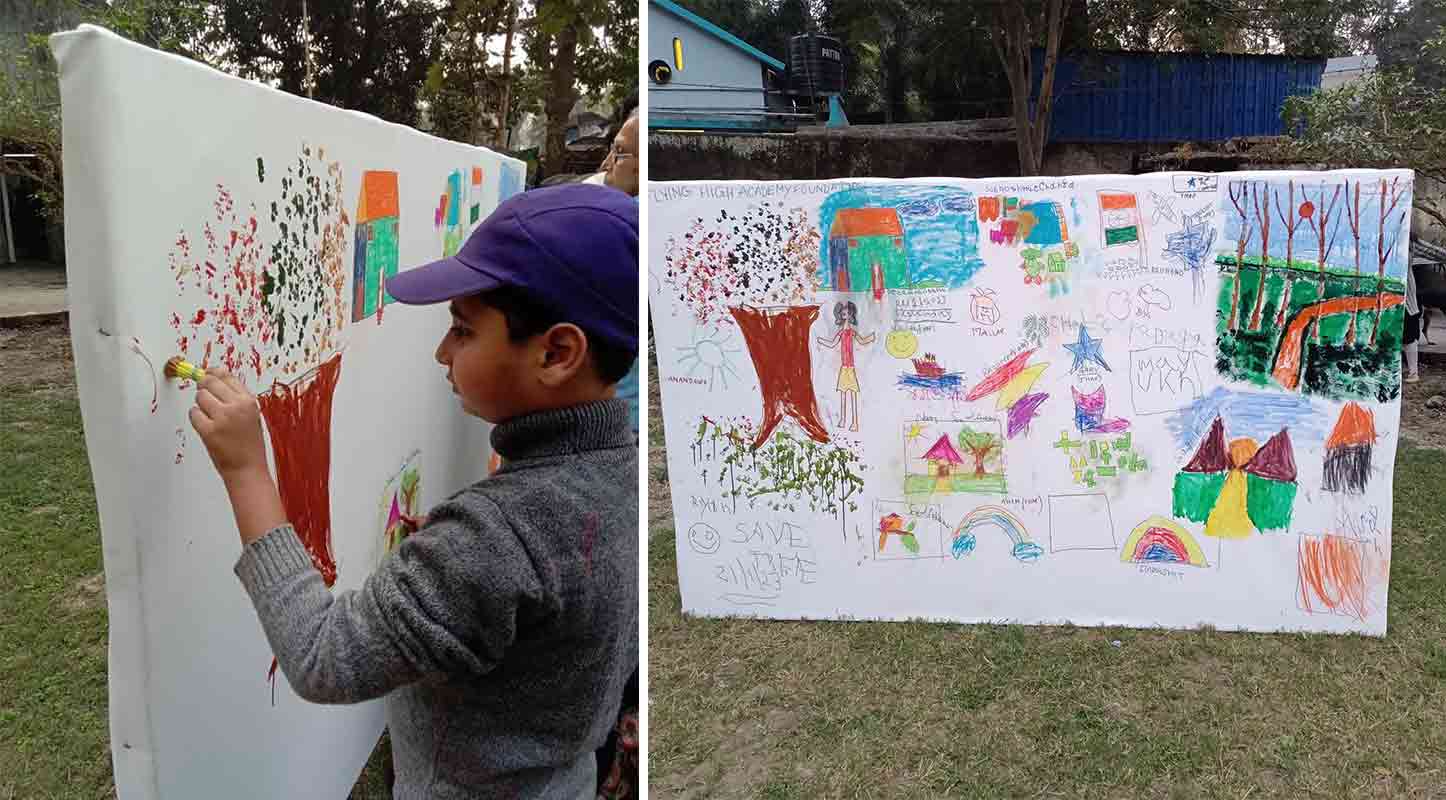
Children on the spectrum painted on a common canvas during the workshop
For the collaborators, the returns were much more than just money. “It creates an immense spark for any artist, when they put something on canvas thinking about kids who are on the autism spectrum or have a mental disability. The art community came together by creating artwork with the intent to alleviate someone’s suffering. The people who visited us had the knowledge that they were donating a percentage to this cause when they bought a painting. Irrespective of the amount, this was about forging the spiritual connection of doing something for others,” Sarkar said. Although this format benefits the artist, the buyer and the cause, he is quick to add that the primary solution isn’t money, but knowledge.
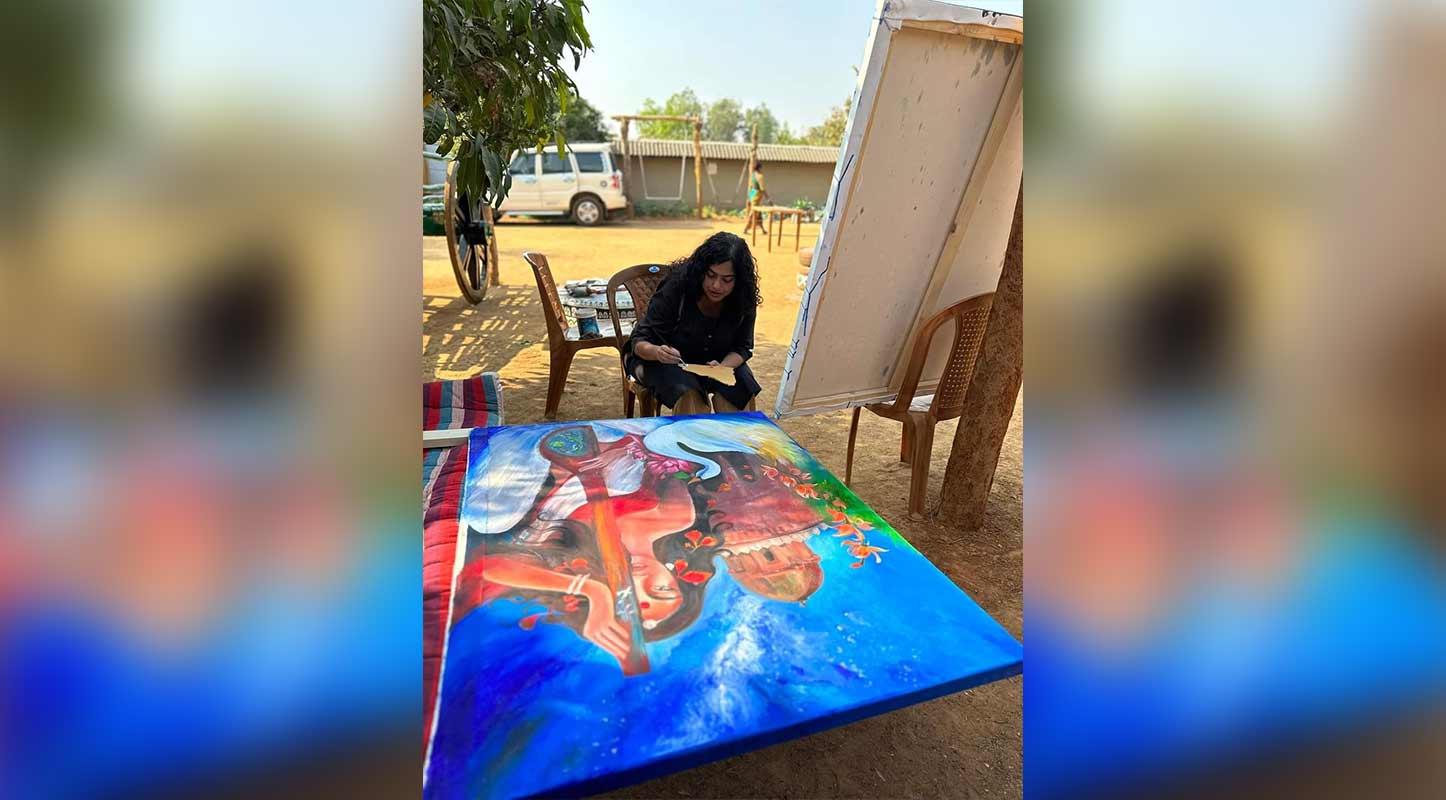
Dr. Shalini Mitra, a US-based scientist, painted this picture of goddess Saraswati as a tribute to the specially abled
The reach of the collective art pieces is far from over. In time, the exhibits from the Academy of Fine Arts will be flown to Brisbane, Australia, followed by the US for future exhibitions. While his efforts are currently concentrated towards uniting Boston and Bengal, Sarkar hopes to expand BBB into an India-US connection in time by cultivating quality friendships. “For a lot of Boston artists, this was their first time in Kolkata. In the future, we will take this cultural exchange beyond art, and become a family across disciplines,” Sarkar signed off.


